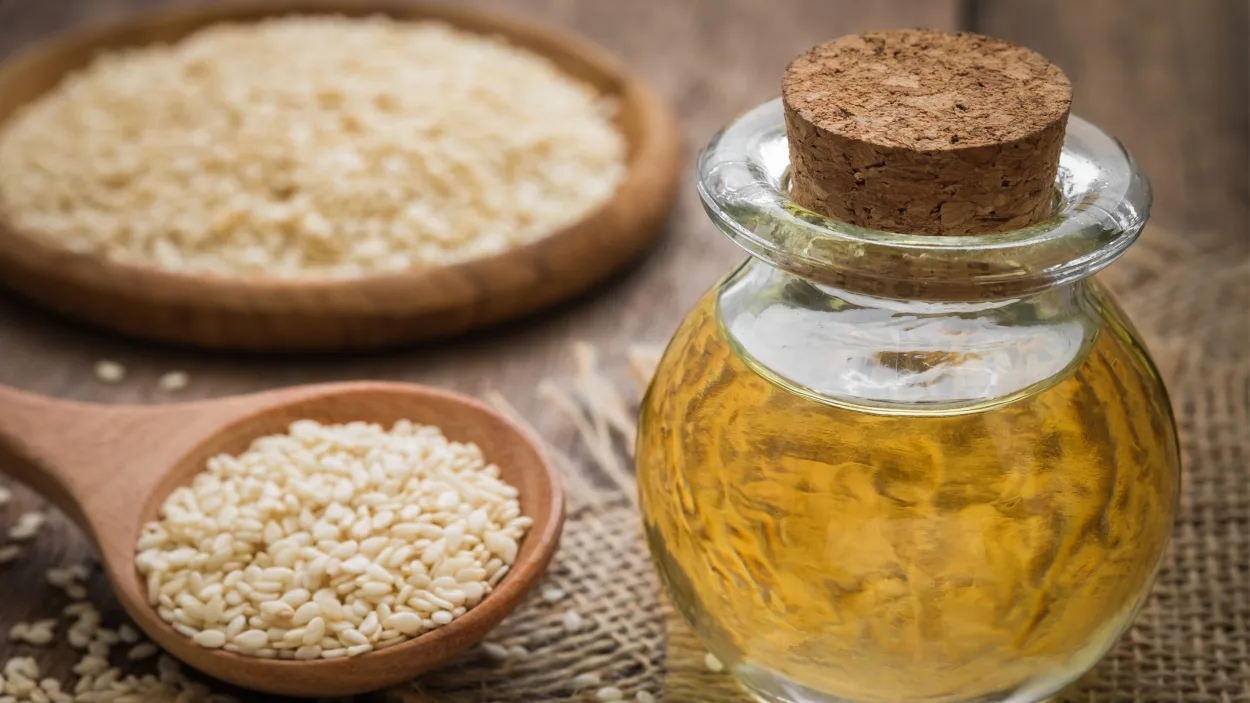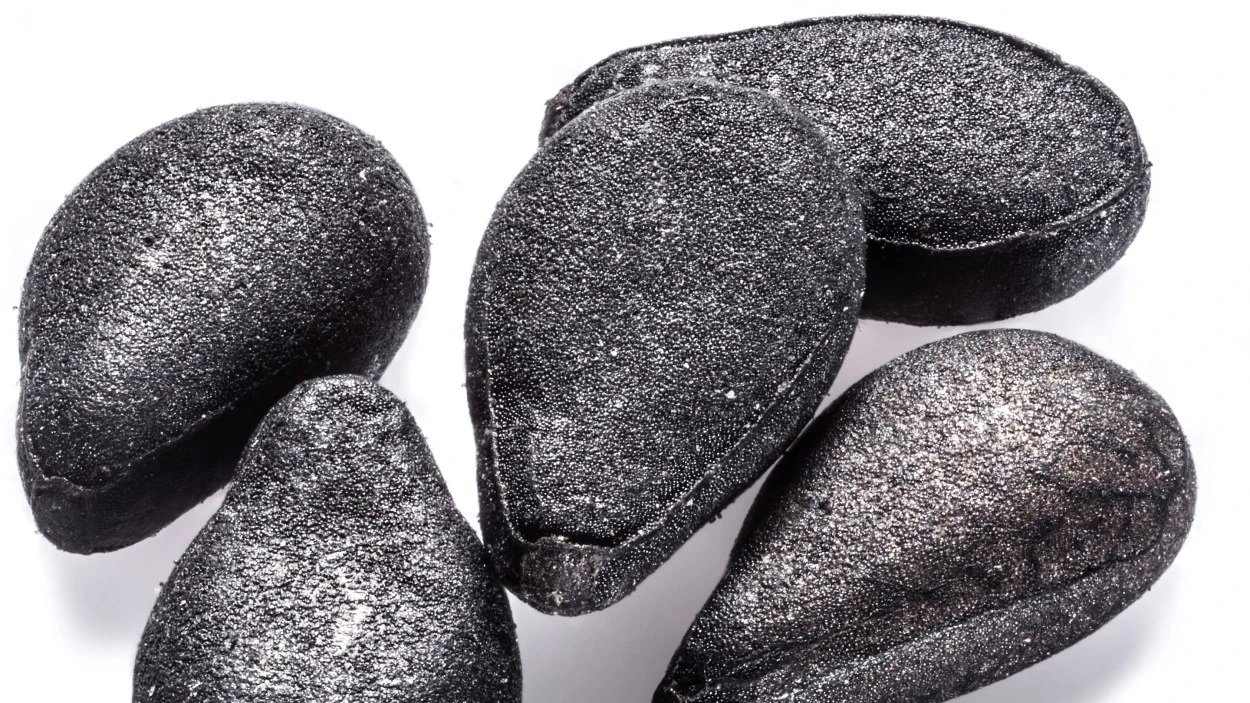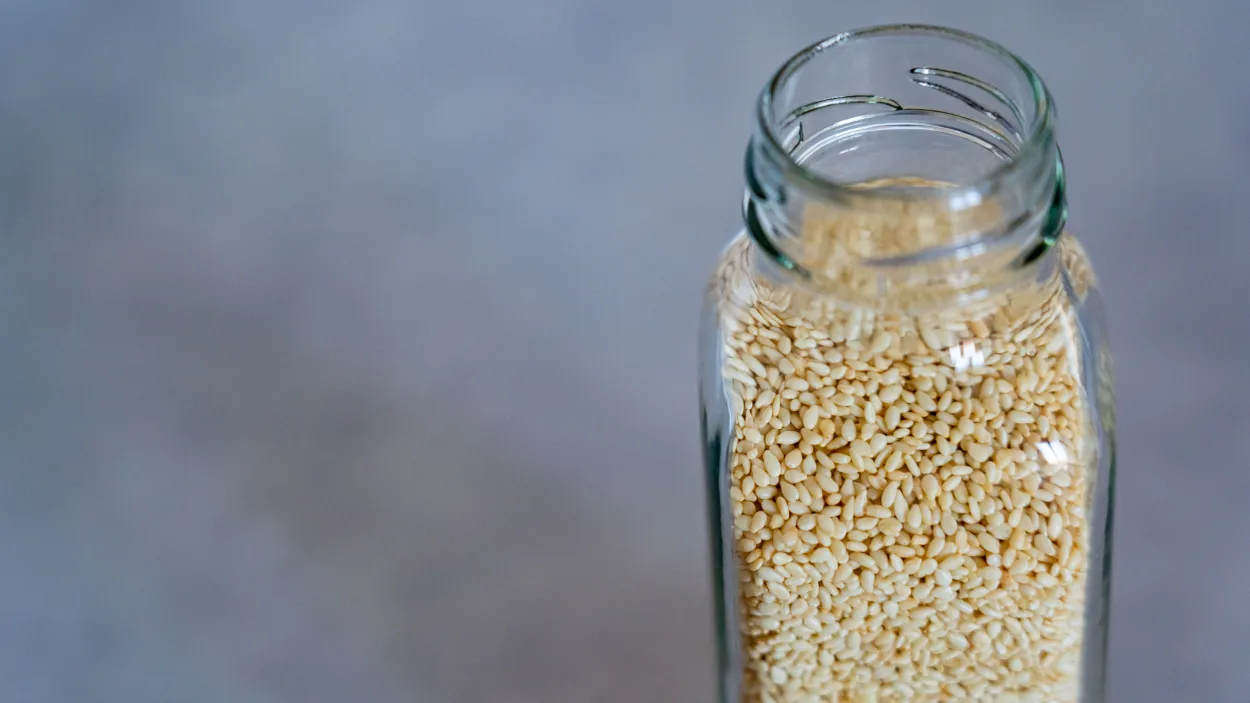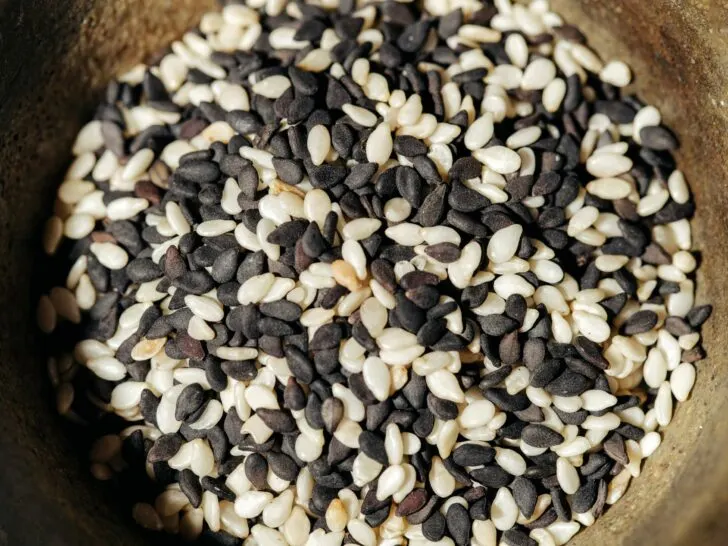Burger buns look incomplete without sesame seeds─its the finishing touch that we all adore.
With sesame seeds, present everywhere─pastries, bread, breadsticks, a part of the desert filing, and they’re even part of your sushi cravings, you can say already that sesames are part of our recipes and cuisine.
And don’t get me wrong, when you hear the word sesame seeds, you’ve probably only thought of only one form of sesame: that plain old off-white seed.
However, just recently, black sesame has become increasingly prevalent in white sesame products. And the result一is a nuttier and more delicious sesame seed with a lot more visual appeal.
But wait一how do they become different from one another?
Black sesame seeds are often larger than white sesame seeds. White sesame seeds taste less bitter and are a lot softer, but black sesame seeds tend to be crunchier.
Let’s all find out together in this article!

What are Sesame Seeds?
Sesame seeds are produced by a plant called sesamum indicium and are used as a condiment around the world. These are edible seeds that have potential health benefits.

And a tablespoon a day of raw or toasted sesame seeds can help you gain these known beneficial effects.
Aid for Digestion
Sesame seeds are a good fiber-dense source.
Three tablespoons (30 grams) of unhulled sesame seeds provide 3.5 grams of fiber or 12% of the RDA.
Because the typical fiber consumption in the United States is half that of the RDI, eating sesame seeds daily may help you get more fiber.
The usefulness of fiber to help digestion is well documented. Fiber may also have a role in lowering the risk of heart disease, some malignancies, obesity, and type 2 diabetes.
Presence of B Vitamins
Sesame seeds are high in specific B vitamins, which are found in both the hull and the seed.
Some B vitamins may be concentrated or removed by removing the hull.
These vitamins also help in metabolism and are essential in performing a bodily process such as cell function.
Reduces blood pressure
Calcium and magnesium are found in sesame seeds, which may help lower blood pressure and safeguard blood vessel health.
Lowering blood pressure can minimize the chance of developing chronic conditions like cardiovascular disease.
Boost your immune system
Sesame seeds are high in zinc, selenium, copper, iron, vitamin B6, and vitamin E, all of which are important for your immune system.
Zinc, for example, is required for the development and activation of certain white blood cells that detect and attack invading microbes.
Keep in mind that even mild to moderate zinc deficiency can wreak havoc on the immune system.
If you want to understand more about sesame seeds and their various health advantages, watch this video.
Is there any health risk associated with Sesame Seeds?
Sesame seeds can trigger sesame allergy.

Sesame is not on the FDA‘s list of significant food allergies, which means that producers are not required to mention it as an allergy on product labels.
As a consequence, people may unknowingly come into touch with sesame. Supplements, pharmaceuticals, and cosmetics are examples of non-food items that may include sesame.
Note: If people suspect they have a sesame allergy, they should get a skin prick test done by a doctor or allergist, which shows how antibodies react to potential allergens.
These are the symptoms to watch out for if you’re having a severe allergic reaction to sesame:
- throat swelling
- wheezing
- a sense of heaviness in the chest
- breathing problems
- coughing
- feeling nauseous
- swelling
- rashes on the skin
- nausea
- diarrhea
Black vs. White Sesame Seeds: Taste and appearance
Black sesame seeds are a different type of sesame than white sesame seeds, and they are often larger.
On some black sesame seeds, the shell is left on, whereas on others, it is removed. White sesame is softer and less bitter than black sesame, therefore there is a flavor difference.
Many people prefer black sesame over white sesame because it is somewhat crunchier. However, black and white sesame are priced differently, with black sesame typically costing twice as much as white sesame.
Black Sesame Seeds: Unhull the nutty flavor
Black or other colored sesame seeds are thought to have had the outer hull of the shell left intact, whereas pure white sesame seeds have had the hull removed.

This is mainly accurate, although some unhulled sesame seeds are still white, tan, or off-white, making them difficult to identify from hulled sesame seeds. It’s advisable to look at the box to see if the fish are hulled or not.
When opposed to the softer, mild white sesame seeds that have had their hull removed, unhulled sesame seeds are often crunchier and have a stronger flavor.
Still, there are differences between hulled and unhulled sesame seeds that go beyond flavor and appearance. In terms of nutritional content, the two varieties might differ significantly.
Black or White Sesame Seeds一Which is more healthy?
Black sesame seeds may have stronger antioxidant activity than white sesame seeds and are backed up by a study.
They can also help you in having a glowing skin complexion and promote healthy hair.
Can you eat raw Sesame Seeds?
Sesame seeds can be consumed raw or roasted or toasted to enhance their natural nutty flavor.
Bagels, burger buns, salads, and breadsticks all have them as a topping. Salads can also be made using them. Ground sesame seeds are used to make tahini, which is a key component in hummus.
Is it possible to use Black Sesame for White Sesame?
Yes, you can easily substitute black sesame for white sesame without altering the recipe.
The only difference is that the black sesame will be somewhat crunchier than the white sesame if eaten whole. Depending on what you’re seeking in your recipe, this might be a good or negative thing.
If you don’t mind the extra texture, black sesame is a great choice. You can grind the sesame seeds in a spice grinder and add them to the recipe if you only want a hint of sesame flavor.
Preparing and storing Sesame Seeds

If you’re having a hard time looking for tips on how to store your sesame seeds, worry no more because I got you covered.
This can lessen your time to prepare your dish for dinner or even for lunch and snack time. Here’s a table you can use for easy reference.
| Sesame Seed | Preparation | Storage |
| Raw | You can use it as a topping to toss your salad or burger buns. | Airtight container or bag in a cool and dark location in your pantry. You can also store it in your freezer. |
| Toasted | You can toast your seeds in two ways: Stovetop Method Oven Method | Same procedure with the raw seeds. Place them in an airtight container or bag and store them in your pantry or freezer. |
The Bottom Line
Sesame seeds are already part of how we prepare our meals一and it is a versatile condiment that you can use.
Plus, it has a lot of health benefits and helps you in lowering your cholesterol and boosting your overall health because of its healthy fats.
So if you’re looking for some crunch in your dishes, both black and white sesame seeds will work as the missing piece in your dish.
Other Articles
- Have you missed me? vs. Did you miss me?- Difference between interrogatives
- What’s the Difference Between Cosplay & LARP?
- Difference between ONII Chan and NII Chan- (All you need to know)
- All you need to know about 410 & 12 gauge shot pellets
- F-16 vs. F-15- (U.S. Air force)
Click here to view the web story version of black and white sesame seeds.

